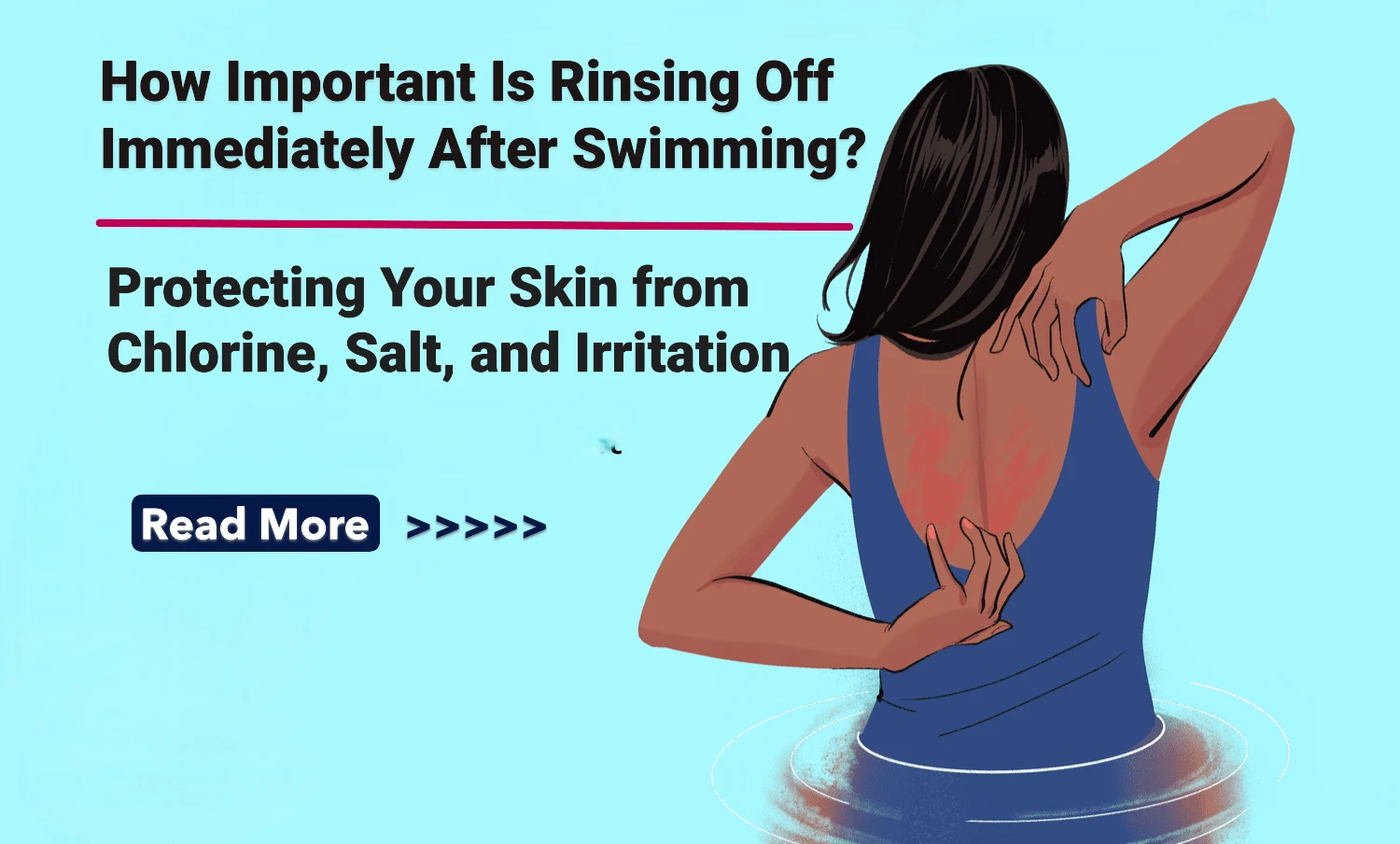How Important Is Rinsing Off Immediately After Swimming? Protecting Your Skin from Chlorine, Salt, and Irritation
How Important Is Rinsing Off Immediately After Swimming? Protecting Your Skin from Chlorine, Salt, and Irritation
Swimming is a fantastic way to stay fit and refreshed, but what you do after getting out of the water is just as important as the time spent in it. Whether you've been in a chlorinated pool or the ocean, rinsing off immediately after swimming is a crucial step in protecting your skin from dryness, irritation, and long-term damage. Here’s why this simple habit can make a big difference for your skin health.
The Impact of Chlorine and Saltwater on Skin
Chlorine, a chemical used in pools to kill bacteria, is effective at sanitizing water—but it’s harsh on your skin. Chlorine strips away natural oils, weakens the skin barrier, and can lead to dryness, tightness, flakiness, and even rashes or eczema flare-ups in sensitive individuals. It can also cling to the skin and continue to cause irritation long after you've left the pool.
Saltwater, though more natural, is also dehydrating. Prolonged exposure to salt can pull moisture from your skin, leaving it feeling dry, rough, and sensitive. The salt crystals can also be abrasive, especially when left to dry on the skin in the sun or wind.
Why Rinsing Off Immediately Matters
1. Removes Residual Chemicals and Salt
Rinsing off with fresh water removes chlorine, salt, and any contaminants that may be lingering on your skin and hair. The longer these substances remain, the more they penetrate and disrupt your skin’s natural barrier.
2. Prevents Dryness and Itchiness
Chlorine and salt can exacerbate dryness. A quick rinse helps halt the dehydration process, preventing your skin from becoming tight, itchy, or flaky.
3. Reduces Risk of Irritation and Breakouts
Leftover chlorine and salt can clog pores and irritate sensitive skin. Rinsing helps prevent conditions like “swimmer’s itch,” rashes, and post-swim acne, especially on the face, back, and chest.
4. Prepares Skin for Moisturization
Rinsing clears the skin, allowing moisturizers and post-swim skincare products to absorb more effectively. Applying lotion on skin that hasn't been properly rinsed can trap chlorine or salt residue, leading to further irritation.
How to Rinse Effectively
-
Use lukewarm water—hot water can further dry out the skin, while cold water may not fully remove oils or residues.
-
Rinse thoroughly—make sure to rinse all areas of the body, including underarms, back, scalp, and between toes.
-
Follow up with a gentle cleanser to remove any remaining chemicals or salt, especially if you’ve been swimming for an extended period.
-
Apply a moisturizer immediately after drying off to replenish hydration and protect your skin barrier.
Final Thoughts
Rinsing off immediately after swimming isn't just about feeling clean—it’s an essential part of post-swim skincare. It protects your skin from irritation, dryness, and long-term damage caused by chlorine and saltwater. Whether you're a casual swimmer or a regular at the pool, adopting this simple habit can help maintain healthy, smooth, and resilient skin all year round.

Related Blog
What Causes Oily Skin and Can It Be Managed Naturally? Exploring Root Causes and Gentle Solutions
Aug 2, 2025 by Admin
General
What Are the Signs That You Have Sensitive Skin? Key Symptoms to Help You Identify This Delicate Skin Type
Aug 1, 2025 by Admin
General